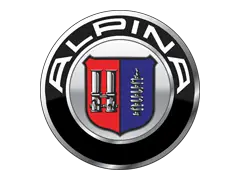Volkswagen Golf VII (5-door) R 2.0 TSI (300 Hp) 4MOTION DSG
Volkswagen Golf:
The Volkswagen Golf is a compact car/small family car produced by the German automotive manufacturer Volkswagen since 1974, marketed worldwide across eight generations, in various body configurations and under various nameplates – including as the Volkswagen Rabbit in the United States and Canada , and as the Volkswagen Caribe in Mexico.
The original Golf Mk1 was a front-engined, front-wheel drive replacement for the air-cooled, rear-engined, rear-wheel drive Volkswagen Beetle. Historically, the Golf is Volkswagen's best-selling model and is among the world's top three best-selling models, with more than 35 million units sold as of 2019....(Read more on Wikipedia)
VII (5-door) Overview:
Volkswagen Golf (VII (5-door)). With 380 Nm of torque, it offers ample pulling power. It has moderate fuel consumption (~8.75 l/100km). With a weight of 1450 kg, it falls in the mid‑range. All‑wheel drive provides excellent grip, ideal for off‑road use. Acceleration is excellent (0–100 km/h in 4.9 s). The top speed reaches 250 km/h. A compact car with a rear door that swings upward to provide access to the cargo area. Seating for 5 makes it ideal for daily use.
People's Opinions:
Our robots surveyed the comments on Reddit to find out people's satisfaction with Volkswagen Golf. About 108 comments were scanned, 26 comments (24.07% of the total comments) were positive, compared to 9 negative comments (8.33% of the total comments). The remaining 73 comments were neutral (did not mention any praise or criticism) (%neutralPercentag%% of the total comments), and thus it received a rating of 1 stars out of 5.

Pros and Cons:
Pros:
• Advanced ICE tech: Direct injection and Multi-port manifold injection, DOHC, Turbocharger, Intercooler.• Decent ICE-only acceleration: 6.4 sec.
• Complies withEuro 6 emission standard.
• Efficient fuel consumption: 6 L/100 km combined.
• Decent 0–100 km/h time: 6.4 sec.
• Strong weight-to-power: ≈ 175.4 hp/tonne.
• Good weight-to-torque: ≈ 270.3 Nm/tonne.
• Front-wheel drive offers efficiency and lower weight.
• Independent suspension (front: Independent, type McPherson with coil spring and anti-roll bar, rear: Independent multi-link spring suspension with stabilizer) for comfort and handling.
• Ventilated front brakes improve stopping power under load.
• Ventilated rear brakes enhance braking performance.
• Rack-and-pinion steering for precise control.
• ABS improves braking safety.
• Electric power steering improves efficiency and feel.
• Generous trunk space: 1270 L.
• Reasonable curb weight (1307 kg).
• High payload capacity:543 kg.
• Towing capacity: 1600 kg with brakes (12%).
• Towing without brakes:690 kg.
• Tight turning circle of 10.9 m for easy maneuvering.
Cons:
• Low ground clearance (133 mm) may limit rough-road capability.Based on the pros and cons, the car is rated 4/5

Specifications:
Specifications are compared to those of the previous generation(VI (3-door): December, 2009 - 2012).
General:
Brand: Volkswagen
Model: Golf
Generation: VII (5-door)
Modification (Engine): R 2.0 TSI (300 Hp) 4MOTION DSG
Start of production: December, 2013
End of production: December, 2016
Powertrain Architecture: Internal Combustion engine
Body type: Hatchback
Seats: 5
Doors: 5
Engine:
Engine systems: Start & Stop System
Power: 300 Hp @ 5500-6200 rpm. Same horsepower
Power per litre: 151.2 Hp/l [63mm more.]
Torque: 380 Nm @ 1800-5500 rpm.
Engine Model/Code: EA888 / CJXC More details about the engine EA888 / CJXC
Engine displacement: 1984
Number of cylinders: 4
Engine configuration: Inline
Number of valves per cylinder: 4
Fuel injection system: Direct injection and Multi-port manifold injection
Engine aspiration: Turbocharger, Intercooler
Valvetrain: DOHC
Engine oil capacity: 5.7 l
Coolant: 8 l
Engine layout: Front, Transverse
Cylinder Bore: 82.5 mm
Piston Stroke: 92.8 mm
Compression ratio: 9.3:1
Performance:
Fuel Type: Petrol (Gasoline)
Fuel consumption (economy) - urban: 8.7-8.8 l/100 km
Fuel consumption (economy) - extra urban: 5.9-6.1 l/100 km
Fuel consumption (economy) - combined (NEDC): 6.9-7.1 l/100 km
Fuel consumption (economy) - urban (NEDC): 8.7-8.8 l/100 km
Fuel consumption (economy) - extra urban (NEDC): 5.9-6.1 l/100 km
Fuel consumption (economy) - combined: 6.9-7.1 l/100 km
Emission standard: Euro 6
Acceleration 0 - 100 km/h: 4.9 sec
Acceleration 0 - 62 mph: 4.9 sec
Maximum speed: 250 km/h, Electronically limited
Weight-to-power ratio: 4.8 kg/Hp, 206.9 Hp/tonne
Weight-to-torque ratio: 3.8 kg/Nm, 262.1 Nm/tonne
Acceleration 0 - 60 mph: 4.7 sec
Space:
Kerb Weight: 1450
Max. weight: 1980
Max. roof load: 75 kg
Max load: 530
Trunk (boot) space - maximum: 1233 l
Trunk (boot) space - minimum: 343 l
Fuel tank capacity: 55 l
Size:
Ramp-over (brakeover) angle: 9.9°
Length: 4276 mm [63mm more.]
Width: 1799 mm [13mm more.]
Height: 1436 mm [29mm more.]
Wheelbase: 2630 mm [52mm more.]
Width including mirrors: 2027 mm
Front track: 1541 mm
Rear (Back) track: 1515 mm
Ride height (ground clearance): 128 mm
Minimum turning circle (turning diameter): 10.9 m [above average]
Approach angle: 12.3°
Departure angle: 15.1°
Powertrain:
Drivetrain Architecture: The Internal combustion engine (ICE) drives the front wheels permanently, and the rear wheels are driven through an electrically or mechanically operated clutch if necessary.
Drive wheel: All wheel drive (4x4)
Number of gears: 6
Transmission type: Automatic
Gearbox type: DSG
Front brakes: Ventilated discs, 340x30 mm [Best for performance and cooling.]
Rear brakes: Ventilated discs, 310x23 mm [Best for performance and cooling.]
Assisting systems: ABS (Anti-lock braking system)
Steering type: Steering rack and pinion
Power steering: Electric Steering
Tires size: 225/40 R18; 235/35 R19
Wheel rims size: 7.5J x 18; 8J x 19
Front suspension: Independent, type McPherson with coil spring and anti-roll bar
Rear suspension: Independent multi-link spring suspension with stabilizer



















































Driven it? Loved it? Hated it? Share your honest review!